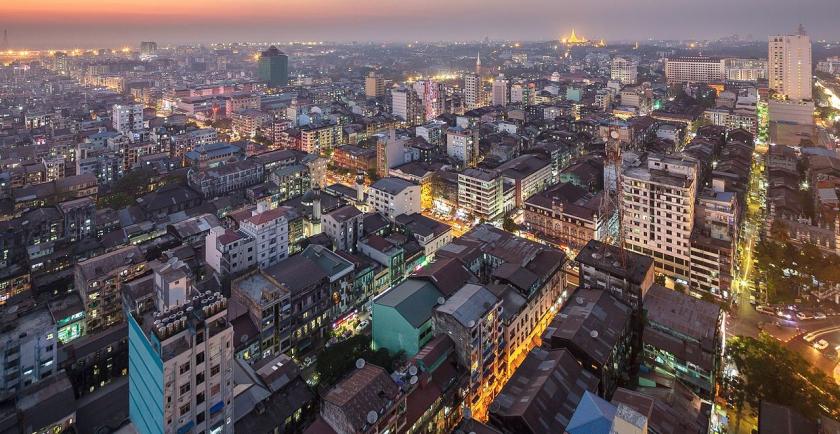Myanmar expects a combination of market reforms and rebound in foreign investment to underpin stronger economic growth in 2018
15 Sep 2017
A combination of market reform and a rebound in foreign investment is expected to underpin stronger growth in Myanmar’s economy this year and into 2018.
The process of opening up the economy to private sector and overseas involvement took a key step forward in mid-June, with the Ministry of Commerce announcing further liberalisation of trade and import regulations.
Under the new rules issued in mid-June, foreign companies are now permitted to trade and import fertilisers, seeds, pesticides, hospital equipment and construction materials, in accordance with the Myanmar Harmonised System commodity code. Trade of these products was formerly limited to domestic firms, or those working in partnership with overseas companies.
The easing of these restrictions should help clear supply bottlenecks in the agricultural, health care and construction industries, with knock-on benefits expected for broader economic growth.
Setting the stage for investment
The new Myanmar Investment Law, which came into force in April, should also play a major role in supporting renewed FDI inflows, having levelled the playing field by bringing two distinct pieces of legislation for foreign and domestic investment under the same regulatory framework.
The business community is also expecting the adoption of the Companies Act, which will help to regulate the local operating environment. Authorities are currently working to prepare the legislation for ratification before the end of the year.
In addition to making the Companies Act conform to the new Myanmar Investment Law, the proposed amendments are seen as vastly different from the old act, and should both make it easier to set-up companies and register them electronically.
Other reforms bode well for the opening up of the retail sector to 100% foreign-owned companies. The way forward was paved by the Myanmar Investment Commission’s Notification 15/2017, dated April 10, 2017. The notification allows foreigners to participate in retailing and wholesale services, subject to the approval of the Ministry of Commerce. Judging by the Ministry of Commerce’s actions last June, it will only be a matter of time before there is further liberalisation of trade and import regulations.
Both the Asian Development Bank and the IMF expect foreign investment to accelerate, and early signs look positive: $1.85bn worth of foreign direct investment (FDI) was approved by the Myanmar Investment Commission in the first quarter of FY 2017/18, with June alone seeing $713.4m in ratified investment from 22 overseas companies.
In FY 2016/17 Myanmar attracted more than $6.87bn in FDI, according to data issued by the Myanmar Investment Commission. While this figure was above the $6bn target set later in the financial year, it fell below the $8bn bar set by the Directorate of Investment and Company Administration, and was short of the $9.5bn FDI posted in FY 2015/16.
Work in progress
Widely recognised impediments to attracting higher levels of foreign investment in Myanmar
are related to infrastructure; in particular, a lack of electricity access and underdeveloped transport networks.
To finance these development needs, the government will need to look to the private sector, according to U Win Khaing, minister of construction.
“We are working to expand electricity access and increase road connectivity. However, given our budgetary limitations, these projects can only be undertaken in partnership with international investors and financial institutions, preferably under public-private partnership models,” he told OBG.
“We must also look to increase interaction with local and international stakeholders to align the construction industry with international standards and good governance practices,” he added.
Regaining
momentum
During FY 2016/17, which ended on March 1, GDP growth slowed from 7.4% to 6.4%. Much of this cooling has been attributed to external factors, such as the continued impact of flooding between July and September 2015, and declines in global commodities prices.
However, some of the root causes have been internal, including weaker construction activity in Yangon due to regulatory compliance, according to the IMF’s most recent Article IV consultation.
The transition of power following the election of the National League for Democracy at the end of January 2016 has also slowed the pace of reform, as the new government gets to grips with the task of reshaping the economic focus to consolidate growth and stability.
However, as legislative changes enacted over the past year begin to take effect and global market conditions pick up, the country’s economy should gain momentum both this year and next.
GDP is forecast to expand by 7.7% in FY 2017/18 and by 8% in FY 2018/19, according to the latest projections from the ADB.
(Myanmar Business Today: https://www.mmbiztoday.com/articles/myanmar-steps-reforms-entice-investors )











